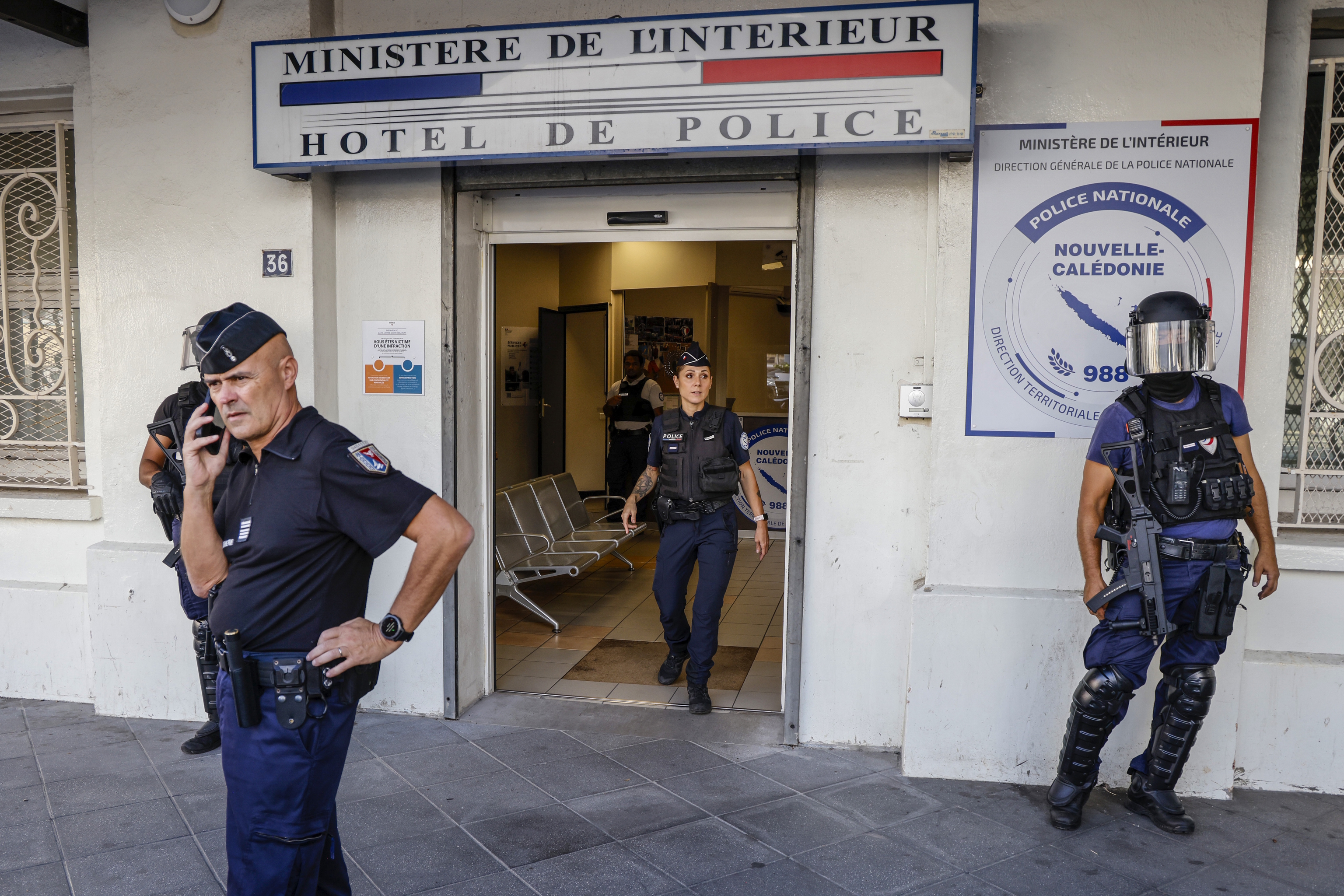Gerald Darmanin said in a post on X Friday that "a major police operation has taken place successfully" in the Riviere-Salee district of Noumea, the last area of New Caledonia's capital that was under the protesters' control.
Darmanin said 400 members of French and New Caledonia's security forces were involved in the operation, including members of the French elite anti-terrorism and anti-organized crime police unit and its counterparts of the French military. Twelve people were arrested in the operation and 26 roadblocks were dismantled and cleared, the minister said.
The violence flared on May 13 in response to attempts by French President Emmanuel Macron's government to amend the French Constitution and change voting lists in New Caledonia. France declared a state of emergency in its Pacific territory on May 15 and rushed hundreds of troop reinforcements to help police quell the revolt that included shootings, clashes, looting and arson.
Both sides of New Caledonia's bitter divide — Indigenous Kanaks, who want independence and those loyal to France — erected barricades, either to revolt against authorities or to protect their homes and properties. Pro-independence protesters built up barricades of charred vehicles and other debris, turning parts of the capital, Noumea into no-go zones.
French President Emmanuel Macron decided on Monday to lift the state of emergency in New Caledonia to help facilitate dialogue between local parties and French authorities for the future of the 270,000 residents of the archipelago and restore peace.
Pro-independence parties and Kanak leaders have urged Macron to withdraw the electoral reform bill if France wants to "end the crisis." Opponents fear the voting legislation will benefit pro-France politicians in New Caledonia and further marginalize the Indigenous Kanaks who have long pushed to be free of French rule amid sharp economic disparities and decades of discrimination.
Although violence has subsided in the past days, tensions remain as pro-independence leaders have called on supporters to and "remain mobilized" and "maintain resistance" against France.
While emergency measures have been lifted, an evening and overnight curfew is still in place. Travel is banned in New Caledonia between 6 p.m. and 6 a.m. except for health emergencies, and a ban on public gatherings, transport and carrying of weapons and sale of alcohol remains in place.
The main international airport, La Tontouta, will remain closed to commercial traffic at least until Monday, and schools will not resume before mid-June, according to local authorities.
New Caledonia became French in 1853 under Emperor Napoleon III, Napoleon's nephew and heir. It became an overseas territory after World War II, with French citizenship granted to all Kanaks in 1957.
